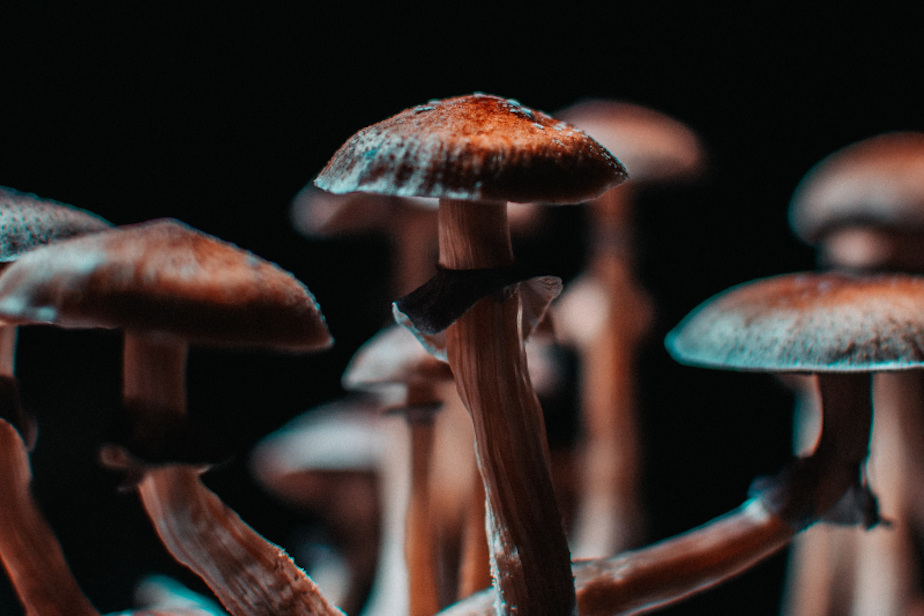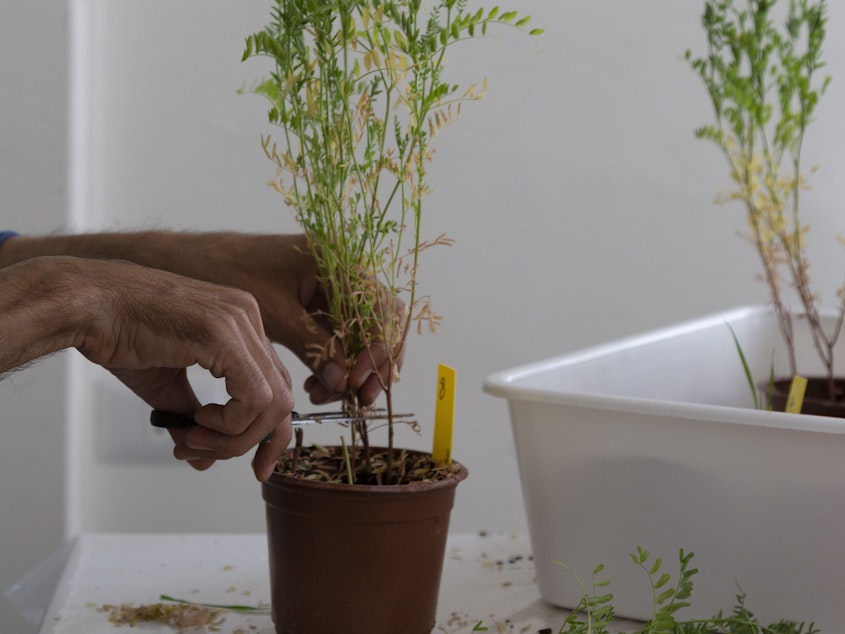Should Washington use magic mushrooms for mental health?: Today So Far

Washington is, again, considering the legalization of magic mushrooms ... sort of.
The King County Medical Examiner says that our region is "now struggling with the issue of storing bodies because the fentanyl-related death toll continues to climb."
Another effort in Olympia aims to tackle a different kind of influence through lowering the state's blood alcohol levels in order to be considered for a DUI.
This post originally appeared in KUOW's Today So Far newsletter for January 25, 2023.
Washington is, again, considering the legalization of magic mushrooms ... sort of. More accurately, a bill in Olympia proposes to legalize psilocybin, which is the psychedelic drug that makes magic mushrooms so magical. For a while now, the potential for psilocybin to remedy certain mental health issues, such as depression, PTSD, or addiction, have been known. Tapping into that potential as Washington grapples with the fallout of such issues is the premise of Senate Bill 5263.
Cue the critics. This is the second time lawmakers have tried to legalize psilocybin. A similar bill failed last year. Concerns range from how the state would regulate it, and wariness over the reaction from federal authorities (psilocybin would still be illegal at the federal level). It should probably be noted that cannabis is still illegal at the federal level, yet, it has grown into a massive, multimillion dollar industry ever since Washington legalized it in 2012. Unlike cannabis, however, people would not be able to go buy psilocybin and take it at home. SB 5263 proposes the state license certain providers at outdoor locations, private residences, or even houses of worship. And while mental health is a core argument for the legalization, a person would not need a medical prescription to get the drug. Read the full story here.
As stated above, psilocybin is being looked at as a potential tool to fight addiction. The government is currently studying this potential for opioid addiction. Other recent studies seem to point to a possibility that psilocybin could counter such addictions.
I'm writing "potential" and "possibility" a lot here because there's always some nuance around such studies. One study, for example, looked at people who used a range of drugs, and found that those who also used magic mushrooms had lower odds of developing opioid use disorder. It's these sorts of studies and arguments that are the basis for SB 5263.
The reason folks are considering such a remedy is obvious — we have a really bad opioid problem. Recently, we got another reminder of just how bad it is. The King County Medical Examiner says that our region is "now struggling with the issue of storing bodies because the fentanyl-related death toll continues to climb." In other words, there are so many overdose deaths, officials are running out of places to store the bodies.
Sponsored
In 2022, King County recorded 690 fentanyl-related deaths (about 70% of all overdose deaths that year). In 2021, such deaths added up to 385. Read the full story here.
Another effort in Olympia aims to tackle a different kind of influence through lowering the state's blood alcohol levels in order to be considered for a DUI.
Currently, the number is .08 BAC (blood-alcohol concentration). It's been set at that number for years. That's the number a police officer is looking for when they have you blow into a breathalyzer. The proposal being considered by lawmakers would drop that to .05.
"Unfortunately, we are facing an epidemic of traffic safety challenges in Washington state. We are seeing the highest levels of traffic fatalities in decades. The latest data shows us that over 700 people died on our transportation system statewide in 2022," State Sen. Marco Liias told KUOW.
Liias is a sponsor of SB 5002, the bill that would drop the BAC level. He argues that Washington's traffic fatalities have trended up in recent years.
Sponsored
"We're trying to look for everything we can do to reduce those fatal collisions, as well as serious injuries. Addressing driving while under the influence is one important way to do that, and the data from Utah is really strong. We want to make sure that we get those same results here in terms of saving lives and helping people be safe on our transportation systems."
The "data from Utah" that Sen. Liias points to is an argument you are going to hear a lot as this bill moves forward. Utah lowered its legal limit to .05 BAC in 2018. The U.S. Department of Transportation monitored the results of that move. A federal study concluded that Utah saw a 20% decrease in DUI crashes and an 18% decrease in DUI deaths. The study compared numbers from 2016 and 2019.
Colorado has also implemented a .05 BAC limit, however, a driver is cited for "driving while ability impaired" at this level, and is cited for a DUI at .08. Check out Sen. Liias' full conversation with KUOW here.
AS SEEN ON KUOW

Sponsored
Yakima Police Chief Matthew Murray called a mass shooting at a Circle K Tuesday morning “troubling” since the suspect appeared to have no motive and began firing while walking through the gas station doors, so the victims had no chance to defend themselves. The shooter then exited the store and shot another person in a car. Police found the shooter later that day, dead from an apparent self-inflicted gunshot. (Yakima Police Department)
Did You Know?: Teriyaki was, and wasn't, invented in Seattle
Teriyaki evolved over many years, and Seattle played a major role in its modern development and rise onto menus far and wide. Modern teriyaki is the result of immigration, various cultures mingling, exchanging ingredients, and business savvy, all adding up to an obsession.
Read more here.
ALSO ON OUR MINDS
Sponsored

How ancient seeds from the Fertile Crescent could help save us from climate change
"These wild relatives of crops have been evolving on Earth for millions of years, and they witnessed so many different climates. The traits that help them adapt and survive in these conditions is stored in their DNA. We have this diversity and it can be a tool to help us face the future."

